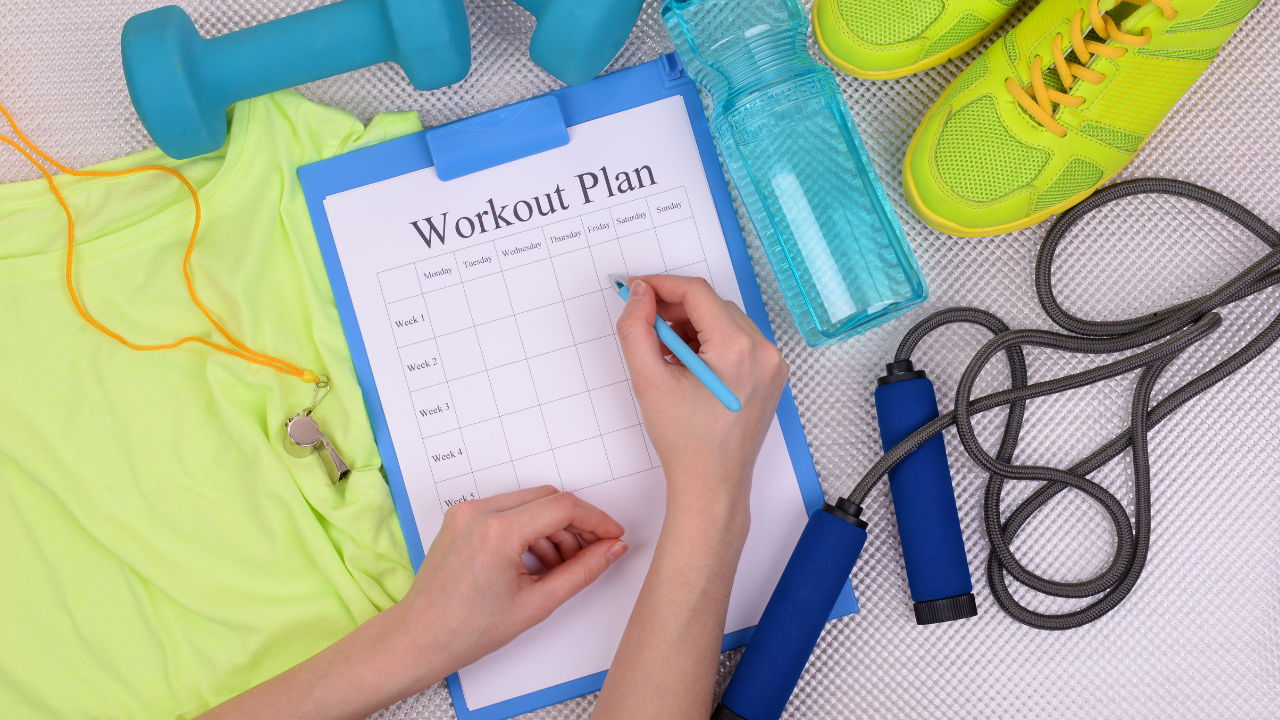The Healthy Living Blog
Is Sugar Sabotaging Your Health?

Did you know that consuming just 100 calories worth of sugar each day (that's about 25 grams or 6 teaspoons of added sugars) is linked to 45 different negative health outcomes?
Let’s put that in perspective:
25 grams of sugar is about the same as what's in one can of soft drink, one cup of chocolate milk, a small glazed donut, or even just two tablespoons of honey. And that’s just for one of these items!
Now, here’s where it gets serious. High sugar intake has been connected to some pretty significant health issues like heart disease, diabetes, obesity, and even some types of cancer. It’s also been linked to conditions like depression, high blood pressure, stroke, and liver disease.
In fact, a study published in the BMJ recommends keeping your daily sugar intake under 25 grams and limiting sugary drinks to less than one a week.
So, what should you do with this information?
I get it, cutting out sugar entirely can be really tough, and for most people, it's not realistic to swear o...
The Truth About Moderate Drinking: What You Need to Know

I’ve got a bit of a mixed bag for you today—some good news and some not-so-great news. Let's start with the tough stuff.
For years, we've been told that moderate drinking—those 1-2 glasses of wine—might actually be good for us. Well, recent research is showing that's not really the case.
A team of Canadian researchers dug into 107 different studies on alcohol use, covering data from more than 4.8 million people. Their findings? The idea that moderate drinking benefits your health might have been wishful thinking.
Here’s a quick rundown:
- People who have 2 drinks a day do not have a lower risk of death compared to those who don’t drink at all. This contradicts what many of us used to believe.
- Drinking about 2 drinks a day doesn’t offer any health benefits, debunking earlier myths.
- More concerning: Women drinking 25+ grams of alcohol daily and men drinking 45+ grams were found to have a higher risk of death from any cause.
But beyond this study, alcohol has always posed challen...
6 Ways You’re Making it Harder to Reach Your Goals

This month, we're focused on making your healthy lifestyle simpler …
And a key part of that is eliminating the barriers that are holding you back from your goals.
Here’s a quick list of 6 things you can stop doing right now to start seeing results faster!
Ready? Let’s go.
- Setting Unrealistic Goals: Jumping straight into big goals like losing 20 pounds in a few weeks or running a marathon in a couple of months can lead to frustration. Instead, set achievable, smaller targets to keep you motivated and on track. A coach can be invaluable if you need help setting realistic goals.
- Comparing Yourself to Others: While it’s okay to draw inspiration from others, don’t let their progress define your journey. Remember, everyone’s path is unique. Focus on your progress and celebrate every step forward.
- Over-Restricting Your Diet: Cutting out entire food groups, skipping meals, or obsessing over the scale can lead to cravings, fatigue, and a loss of motivation. Instead, aim for a balanced a ...
How to Optimise Your Workspace for Better Health

If you sit all day, you’re probably no stranger to aches and pains. But sitting for long periods can lead to more than just a stiff neck or tight hips. It can cause muscle imbalances, repetitive use injuries, and chronic posture issues like slouching or "forward head" syndrome.
You've likely heard about the importance of stretching, getting up, and moving around every hour to keep your muscles happy. But there’s something even more crucial: transforming your workspace to fit your body, instead of forcing your body to adapt to your workspace.
If you’re anything like me, it’s easy to get used to things being a little "off" when you’re focused on a screen. But when you finally stand up, your back aches, your legs and knees feel stiff, and you end up hobbling around. Instead of enduring this discomfort, here’s how to perform a "workspace audit" to better support your health:
Workspace Audit Tips:
-
Check Your Chair: Your chair should fit your body. When you sit, your feet should rest
...
When You Feel Like Your Own Worst Enemy - Breaking Free from Self-Sabotage

Have you ever felt like you're your own worst enemy when it comes to achieving your health and fitness goals?
The good intentions are there… but the follow-through? Not so much.
Some examples:
- You plan to cook a healthy meal at home… but when dinnertime comes around it seems like a lot of hard work, so you end up getting take-away.
- You tell yourself you’ll go to the gym for a workout/do your home workout session… but when the time comes, you tell yourself you’re too tired and not in the mood.
- You plan on going to bed at 10 o’clock so you can be rested for tomorrow… but then you get caught up in a show and end up streaming it until midnight.
If any of those scenarios ring true for you, you are NOT alone.
Almost ALL of us sabotage ourselves at some point or another. We skip workouts, eat food that is not in line with our goals, don’t get enough sleep, or even go out for a little excess “socialising” with our friends.
So how do you bust out of the self-sabotage cycle?
Try fol...
The Perfect Express Workout for Busy Days

I've got an express workout for you today that will get your heart pumping and work nearly every muscle group in your body.
Ready to Give It a Try?
This workout is perfect for those days when you're strapped for time. Save it on your phone and come back to it whenever you're too busy for your regular session!
The "Time-Strapped" Workout
Warm up for 3-5 minutes:
- Walk/jog in place
- Arm and leg swings
Then, do the following circuit 1-3 times through:
- 15 Squats
- 10 Push-ups
- 15 Jumping Jacks
- 10 Couch or Bench Triceps Dips
- 10 Side Lunges (10 each side)
- 30 Seconds Ab Bicycles
- 15 Glute Bridges
- 10 Plank Shoulder Taps (10 each shoulder)
- Rest 90 seconds
This circuit is ideal for traveling, extra busy days, or even when you feel like skipping your workout but want to get something done. Give it a try and feel the difference!
Strength Training - Essential for Your Mood and Mental Health

Over the years, I’ve worked with many clients who initially sought my help to lose weight. Surprisingly, though, the main reason most of them stick with their exercise routines isn't for weight loss but for the incredible mood and mental health benefits.
The Science Behind Exercise and Mental Health
While cardio is often praised for lifting spirits, strength training is equally, if not more, powerful in boosting your mood and mental well-being. Research shows that strength training can help with:
- Reduced Anxiety: Regular strength training helps lower anxiety levels, promoting a sense of calm.
- Lower Depression: Strength training has been shown to reduce symptoms of depression.
- Sharper Thinking: Engaging in strength workouts can enhance cognitive function.
- Better Memory: Strength training supports improved memory retention.
- Increased Energy: It helps combat chronic fatigue, leading to more sustained energy throughout the day.
- Improved Sleep: Regular strength training contribute ...
Why Change is So Hard When Starting a Health and Fitness Plan

Starting a new health and fitness plan is exciting, but sticking to it can be surprisingly tough. There are a few key reasons why making these changes can be so challenging.
Psychological Resistance
Our brains love routine because it’s easy and comfortable. When we try to introduce new habits, it takes a lot of mental effort, and this can be exhausting. This is why it’s so hard to break old habits and form new ones.
Biological Factors
Our bodies are also set in their ways. When we start exercising more, we might feel tired and sore, which can be discouraging. Changing our diet can lead to cravings and feelings of deprivation because our bodies miss the foods we're used to.
Lack of Immediate Results
We live in a world where we expect quick fixes, but fitness and health improvements take time. The slow pace of visible results can be frustrating and make us feel like our efforts aren't paying off.
Social and Environmental Influences
Our surroundings and the people around us have a...
Staying Motivated Through Winter: Balancing Health, Fitness, and Self-Care

Winter brings its own set of challenges for maintaining health and fitness goals. The shorter days and colder weather can make it tough to stay motivated. However, by embracing a balanced approach, you can stay committed to your goals while also recognising the need to slow down, listen to your body, and prioritise self-care.
Embrace the Need to Slow Down
Winter is a time for rest and rejuvenation. Adjusting your training routine to align with the season can help you stay on track without burning out:
- Modify Your Workouts: Shift to lower-intensity exercises like yoga, Pilates, swimming or gentle strength training. These activities are easier on your joints and muscles, reducing the risk of injury.
- Prioritise Recovery: Incorporate more rest days into your routine. Use this time for foam rolling, stretching, and other recovery practices that support your overall well-being.
- Get More Sleep: The longer nights are a natural cue to increase your sleep. Aim for minimum 7-9 hours each n ...


